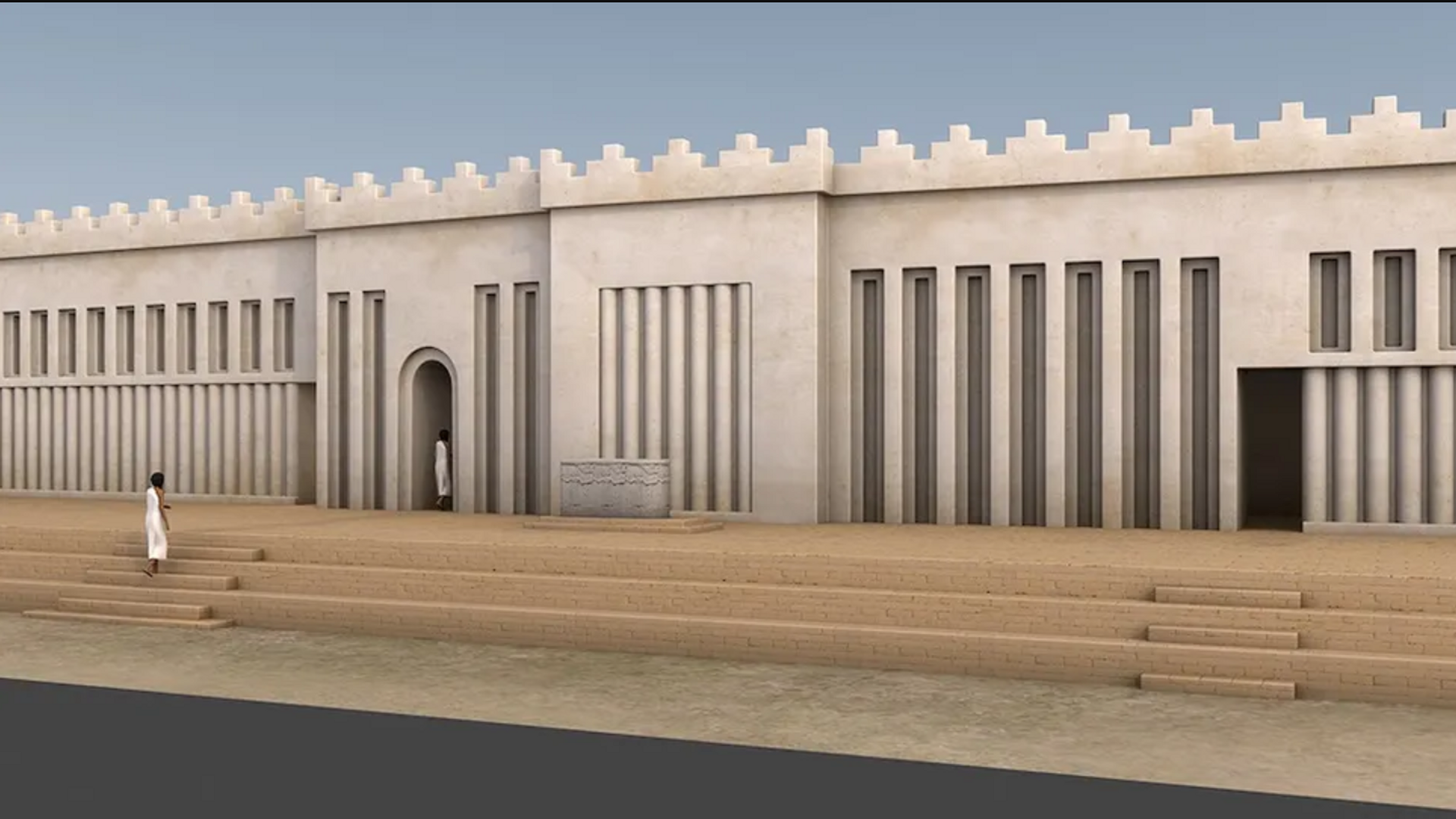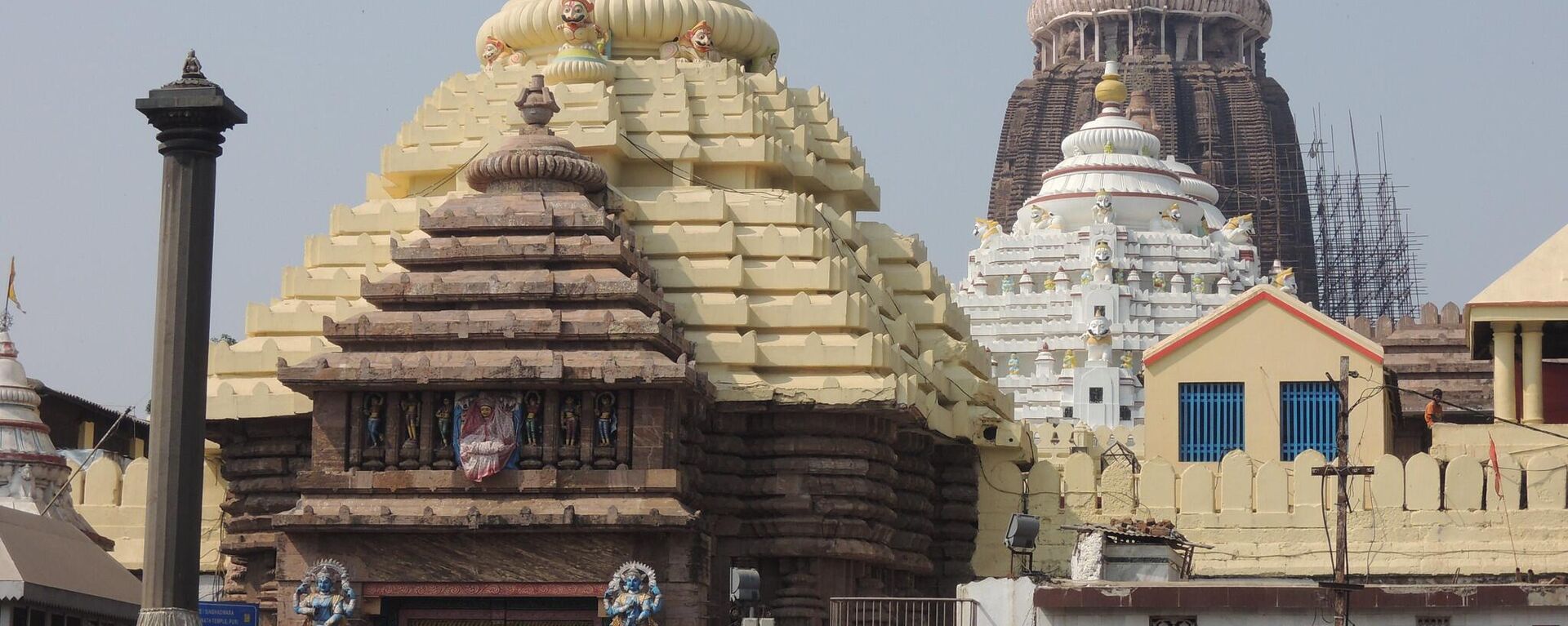https://sputniknews.in/20231208/twin-temples-enshrined-to-hercules-and-alexander-the-great-discovered-in-iraq-5761077.html
Twin Temples Enshrined to Hercules and Alexander the Great Discovered in Iraq
Twin Temples Enshrined to Hercules and Alexander the Great Discovered in Iraq
Sputnik India
Archaeologists have begun large-scale excavations in Iraq after they discovered twin temples built on top of one another, dedicated to Hercules and Alexander the Great.
2023-12-08T20:23+0530
2023-12-08T20:23+0530
2023-12-08T20:23+0530
india
iraq
united kingdom (uk)
archaeological sites
science & tech
science diplomacy
alexander the great
history
culture
https://cdn1.img.sputniknews.in/img/07e7/0c/08/5762746_3:0:1448:813_1920x0_80_0_0_494cbebeacc5687a435f6b673f0b20d4.png
During an excavation in Iraq's ancient Sumerian cit of Girsu, modern day Tello, archaeologists discovered two temples.The newer temple, reportedly built in the Hellenistic era and dating back to the fourth century BC, is believed to have been consecrated to Greek emperor Alexander the Great.Sebastien Rey, an archaeologist and curator of Ancient Mesopotamia at the British Museum in London, led the excavation. Rey told media that archaeologists have discovered the remains of an older Sumerian temple buried in the same location as a newer temple that was dedicated to the Greek demigod Hercules and his Sumerian equivalent, the hero-god Ningirsu — also known as Ninurta. Rey stated that the inhabitants of Babylonia in the 4th century BC demonstrated a vast knowledge of their history, demonstrating the vibrant legacy of the Sumerians.
https://sputniknews.in/20231129/3d-laser-scanning-begins-on-puri-jagannath-temples-treasury--5632954.html
india
iraq
united kingdom (uk)
Sputnik India
feedback.hindi@sputniknews.com
+74956456601
MIA „Rossiya Segodnya“
2023
Sangeeta Yadav
https://cdn1.img.sputniknews.in/img/07e6/0c/0f/110602_0:0:641:640_100x100_80_0_0_c298016a79eb02ef8caa9d1f688c12a5.jpg
Sangeeta Yadav
https://cdn1.img.sputniknews.in/img/07e6/0c/0f/110602_0:0:641:640_100x100_80_0_0_c298016a79eb02ef8caa9d1f688c12a5.jpg
News
en_IN
Sputnik India
feedback.hindi@sputniknews.com
+74956456601
MIA „Rossiya Segodnya“
Sputnik India
feedback.hindi@sputniknews.com
+74956456601
MIA „Rossiya Segodnya“
Sangeeta Yadav
https://cdn1.img.sputniknews.in/img/07e6/0c/0f/110602_0:0:641:640_100x100_80_0_0_c298016a79eb02ef8caa9d1f688c12a5.jpg
archaeologist, excavation, iraq, discovered, temples, hercules, alexander the great, iraq's ancient city of sumerian, girsu, tello, hellenistic era, aramaic, greek languages, sebastien rey, archaeologist, curator of ancient mesopotamia at the british museum, older sumerian temple, greek god hercules, his sumerian equivalent, the hero-god ningirsu, ninurta, mesopotamian people,
archaeologist, excavation, iraq, discovered, temples, hercules, alexander the great, iraq's ancient city of sumerian, girsu, tello, hellenistic era, aramaic, greek languages, sebastien rey, archaeologist, curator of ancient mesopotamia at the british museum, older sumerian temple, greek god hercules, his sumerian equivalent, the hero-god ningirsu, ninurta, mesopotamian people,
Twin Temples Enshrined to Hercules and Alexander the Great Discovered in Iraq
Archaeologists have begun large-scale excavations in Iraq after they discovered twin temples built on top of one another, dedicated to Hercules and Alexander the Great.
During an excavation in Iraq's ancient Sumerian cit of Girsu, modern day Tello, archaeologists discovered two temples.
The newer temple, reportedly built in the Hellenistic era and dating back to the fourth century BC, is believed to have been consecrated to Greek emperor
Alexander the Great.
While exploring the temple, the archaeologists discovered a fired brick that had an inscription in both Aramaic and Greek languages. The inscription mentioned "the giver of two brothers", which could be a reference to the Macedonian king who ruled for 13 years from 336 BC to 323 BC and conquered a significant portion of the known world.
Sebastien Rey, an archaeologist and curator of Ancient Mesopotamia at the British Museum in London, led the excavation. Rey told media that
archaeologists have discovered the remains of an older Sumerian temple buried in the same location as a newer temple that was dedicated to the Greek demigod Hercules and his Sumerian equivalent, the hero-god Ningirsu — also known as Ninurta.
The fact that the newer temple was constructed on the same location as its predecessor indicated the site's importance to the Mesopotamian people, the archaeologist said.
Rey stated that the inhabitants of Babylonia in the 4th century BC demonstrated a vast knowledge of their history, demonstrating the
vibrant legacy of the Sumerians.



